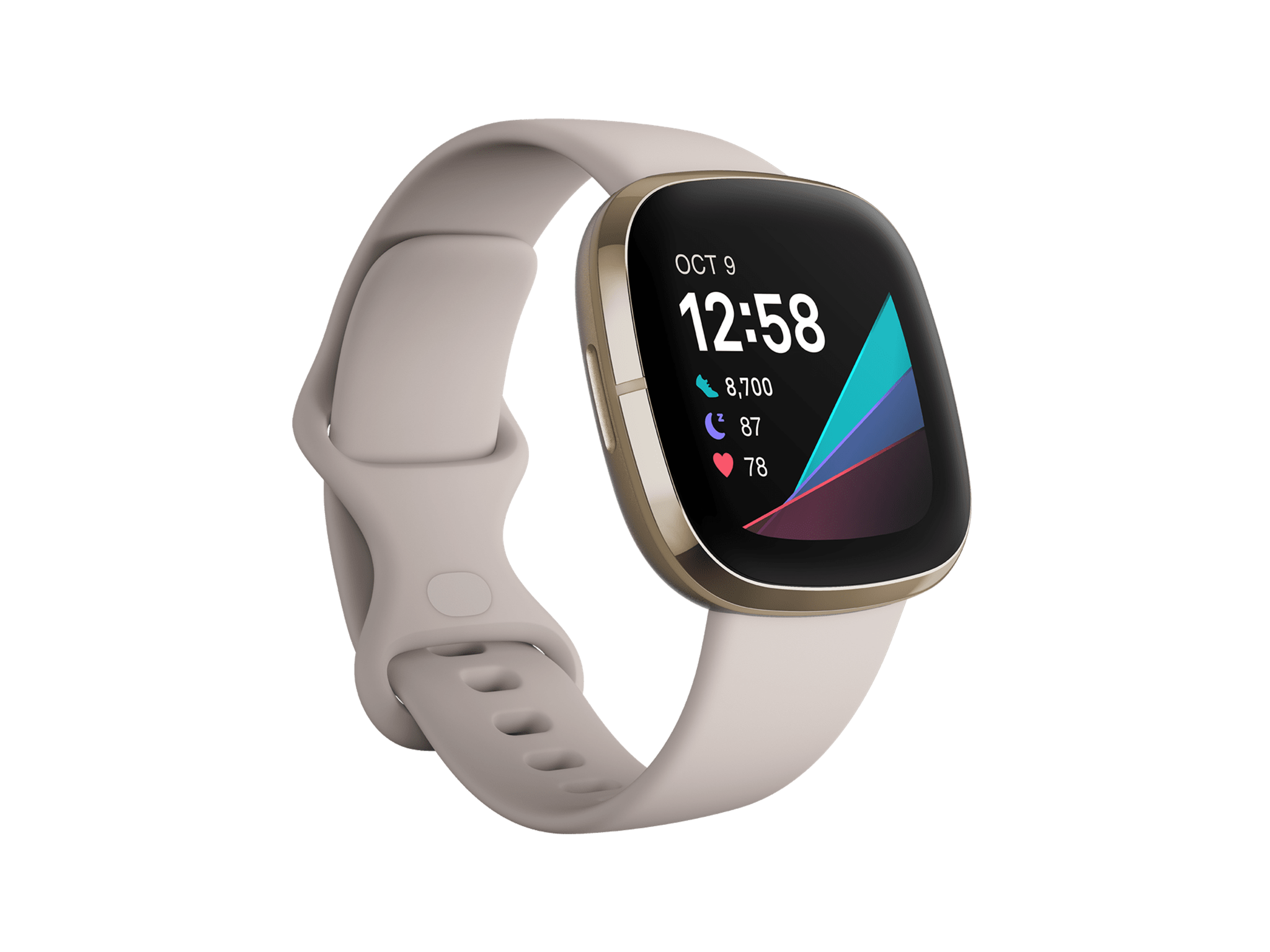
The Independent's journalism is supported by our readers. When you purchase through links on our site, we may earn commission. Why trust us?
The best Fitbits to help improve your health and fitness, from the charge 4 to versa 3
You’ll be right on target with one of these smart watches on your wrist
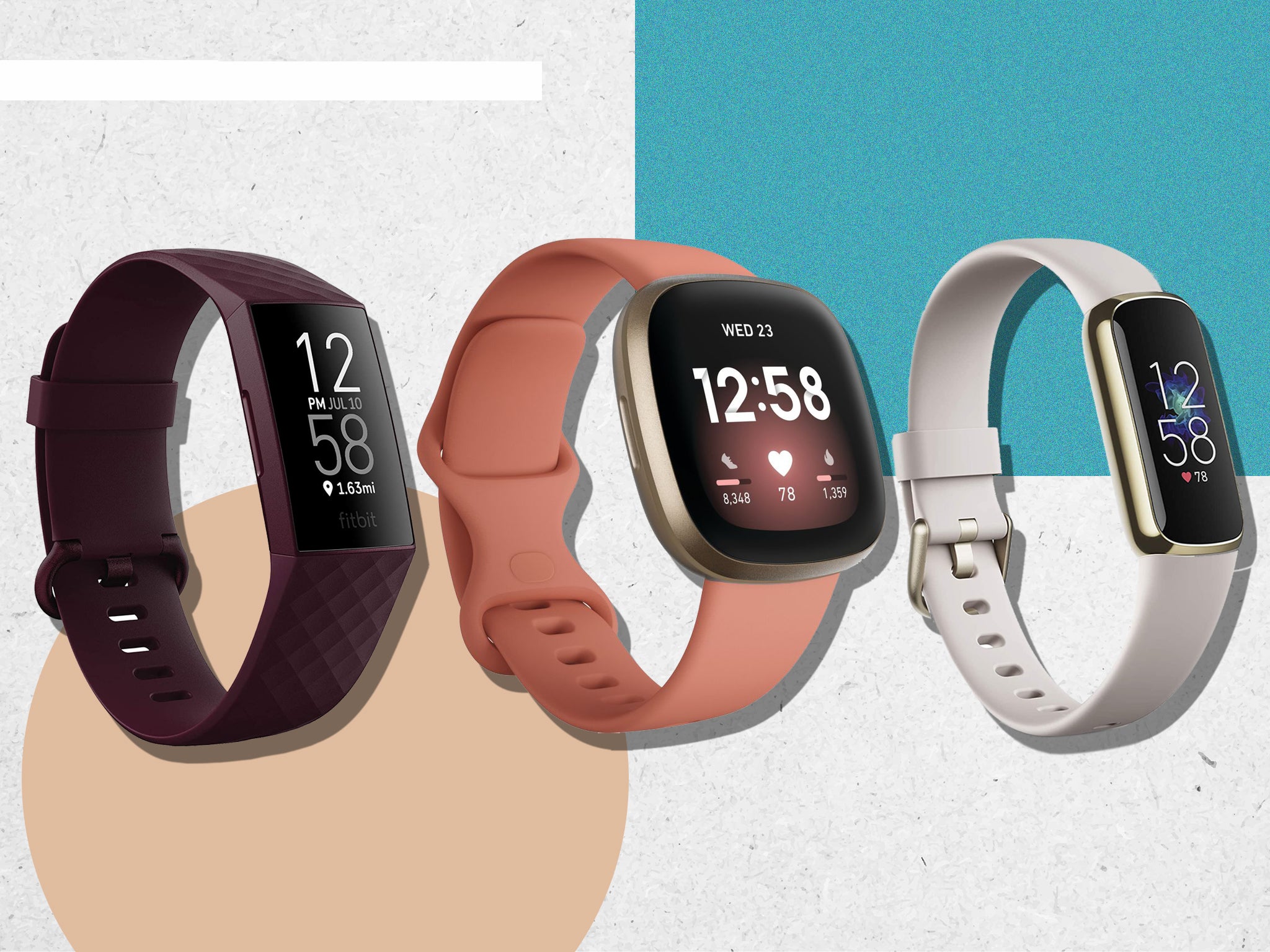
Certain brands manage to corner a market to the extent that their name becomes synonymous with the product. Take Tannoy loudspeakers, for example, Hoover vacuum cleaners or Biro pens. So, too, has Fitbit arguably become the go-to reference point for fitness trackers.
Fitbit has developed quickly in the four years of its existence, from a nascent company focused on straight-up fitness bands to one that produces sophisticated products with a more holistic approach to health and wellbeing, along with wearables that are legitimate rivals to big smartwatch brands.
Fitness is still at the company’s core, however, with more than 275 trillion tracked steps on Fitbit’s products attesting to that. From those who are newly inspired by the Olympics and Paralympics to regular marathon runners, Fitbit remains a trusted partner in the fitness industry.
Most of the brand’s products provide a smorgasbord of health and fitness statistics, from sleep tracking to 24/7 heart rate monitoring, stress management and mindfulness training. More detail into your health is provided with a paid subscription to Fitbit premium, but each Fitbit more often than not comes with either six months or a year free, depending on the model – the official site always provides this but shop around for deals.
Be aware of battery life claims, too. This depends on how you use each watch or tracker and GPS will sap battery quickly, as will other scanning apps, so bear this in mind when starting your ultramarathon training.
Read more:
How we tested
We took Fitbit’s latest generation of products out into the world to test them in a variety of situations, from the gym to mildly intense outdoor workouts and everyday life. We tested for health benefits, connection consistency, ease of use, water resistance and comfort, both during the day and at night, in order to find the right Fitbit for every scenario.
The best Fitbits for 2021 are:
- Best overall – Fitbit sense: £249.99, Fitbit.com
- Best smartwatch features – Fitbit versa 3: £199, Currys.co.uk
- Best fitness tracker – Fitbit charge 4: £99.99, Argos.co.uk
- Best slimline style – Fitbit luxe: £129, Johnlewis.com
- Best for children – Fitbit ace 3: £59.99, Argos.co.uk
- Best battery life – Fitbit inspire 2: £89.99, Johnlewis.com
Fitbit sense

- Best: All-rounder
- Battery life: Up to 6 days
- Standout features: ECG sensor, EDA, SpO2, sleep and menstrual health trackers, guided mindfulness sessions, built-in GPS, smartphone notifications
The sense is one of the best all-round smartwatches we’ve tried. It has the most comprehensive scope of health features in both the Fitbit range and potentially in the smartwatch market full stop. Its holistic approach to your wellbeing is more important in the current climate than ever, with various scan features that measure your stress levels, breathing and heart rate, as well as an EDA app that measures small electrical changes in the sweat level of your skin. It’s all very high-tech but perfectly catered towards ease of use.
Away from the focus on health, the sense is great to use as an everyday smartwatch. It’s supremely comfortable to wear and looks premium, especially due to the stainless steel or gold finishing. The screen’s Gorilla Glass keeps the display consistently crystal clear and will probably protect the watch from getting damaged by anything lighter than a grand piano. Google Assistant or Amazon Alexa are on hand to control the sense hands-free and you can make Bluetooth calls, pay via contactless, and use hundreds of different apps on the generously-sized screen.
The sense is a fitness tracker at its heart but years of development have seen Fitbit create a multi-layered, premium smartwatch that rivals all big tech alternatives.
Fitbit versa 3
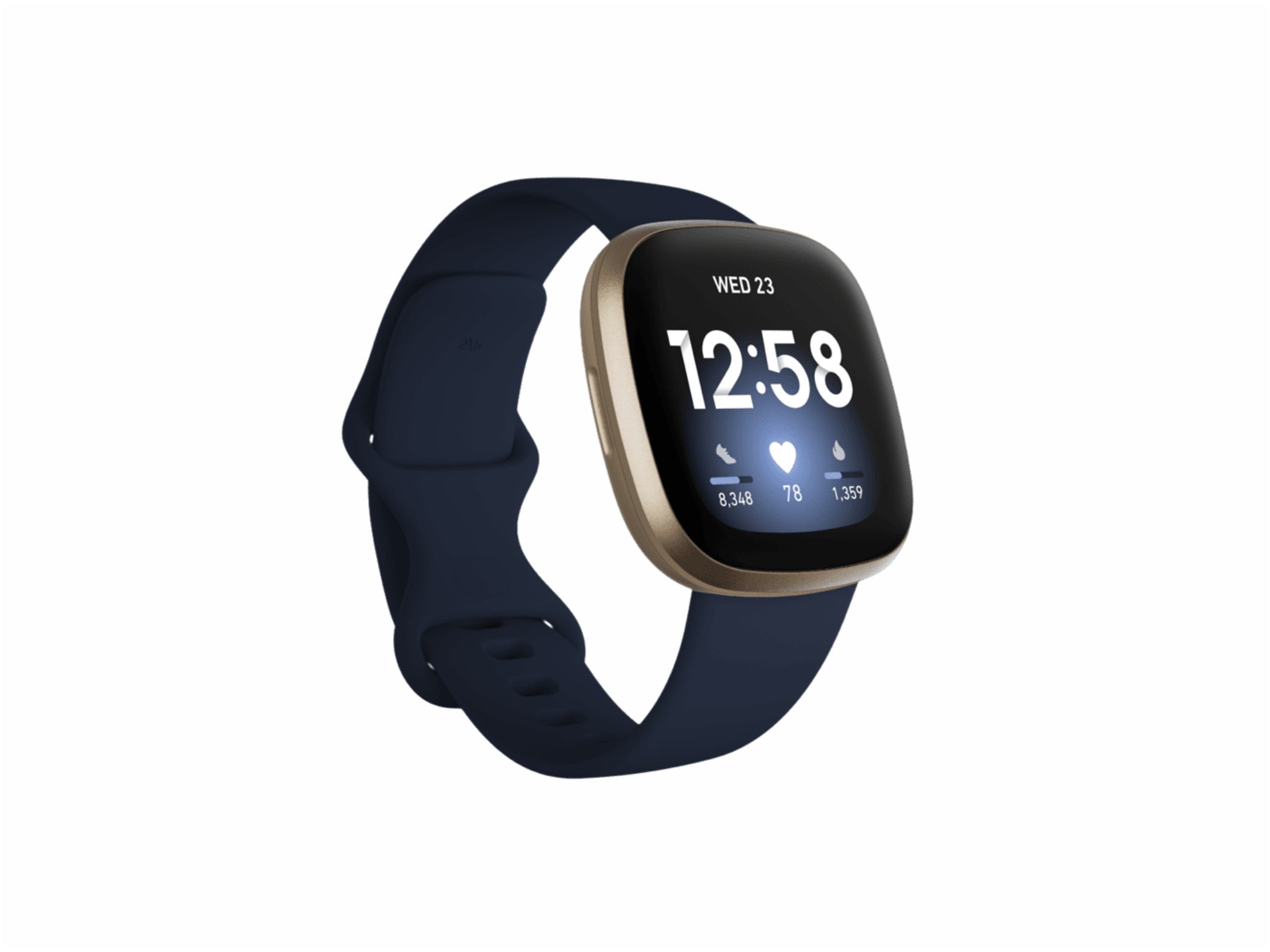
- Best: Smartwatch features
- Battery life: Up to 6 days
- Standout features: ECG sensor, SpO2, sleep and menstrual health trackers, guided mindfulness sessions, built-in GPS, smartphone notifications
Fitbit’s versa model is among its most successful and it’s easy to see why – marketed as the “mass appeal smartwatch”, the third iteration of the versa offers almost everything you’d want out of an everyday smartwatch and fitness tracker. Although the versa 3 definitely has its main focus on the fitness market, there’s also heavy investment in general wellness, through ECG, sleep and blood oxygen saturation sensors.
As noted in our longer review, the versa 3 looks the most like other premium models on the market and its array of features lend themselves to the wider-ranging lifestyle sector, while retaining the versa’s fitness tracker DNA. This is the smartwatch for fitness-focused users that still want a good-looking, contemporary-styled product with enough smart features to help in everyday life.
Fitbit charge 4
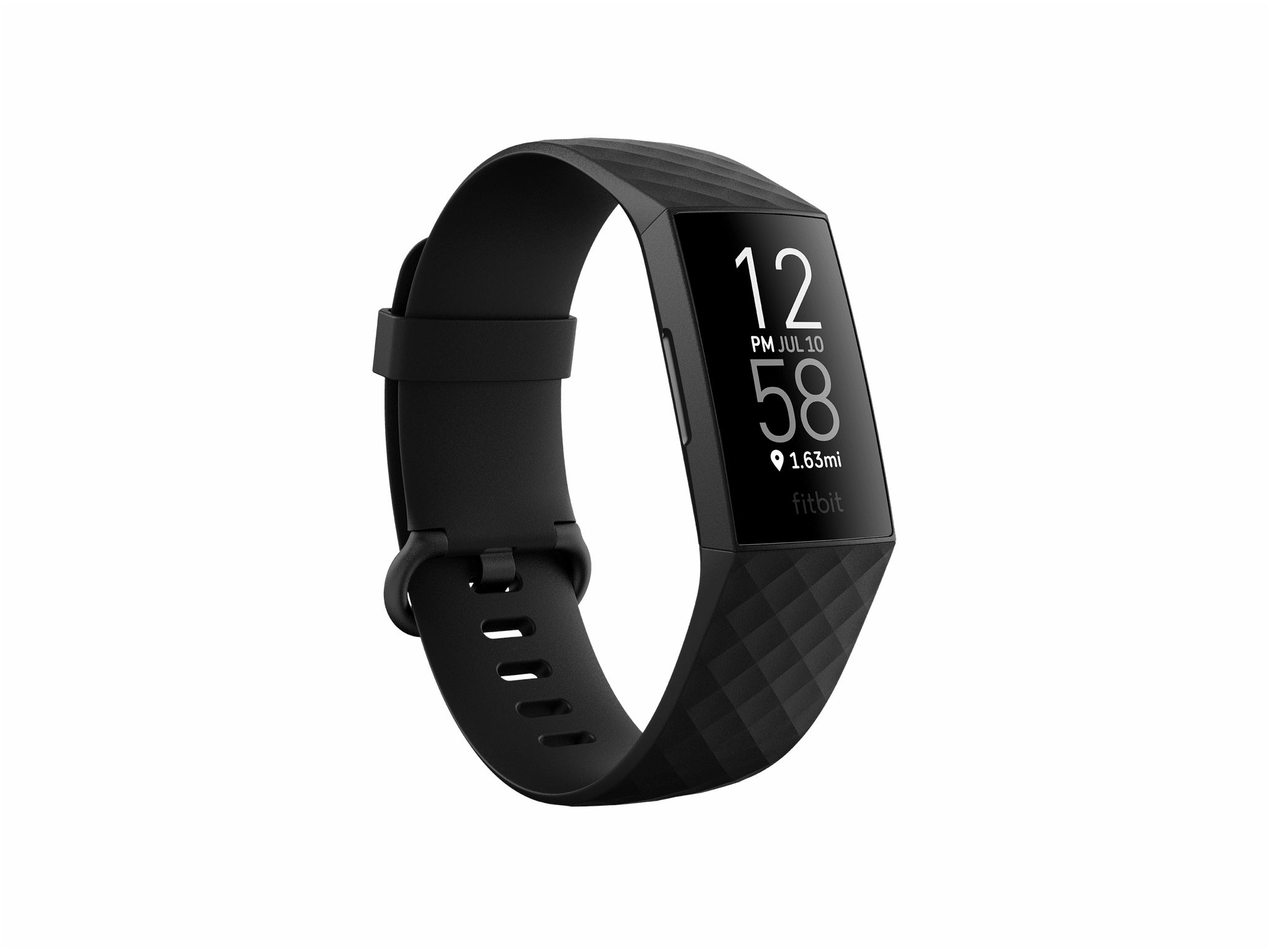
- Best: Fitness tracker
- Battery life: Up to 7 days, 5 hours with continuous GPS use
- Standout features: ECG sensor, SpO2, sleep and menstrual health trackers, stress management tools, built-in GPS, smartphone notifications
The charge 4 is the best of Fitbit’s dedicated fitness trackers. It has almost all of the fitness features you’d find in the sense – along with contactless payments, Spotify and smartphone notifications – but in a stripped-back body. The built-in GPS means that you can leave your phone at home during your workouts and the charge 4 will track your exercise, syncing with your app when you get back. It’s a lightweight, durable, fitness-focused wearable with some impressive tech in a smart, streamlined design.
Fitbit luxe
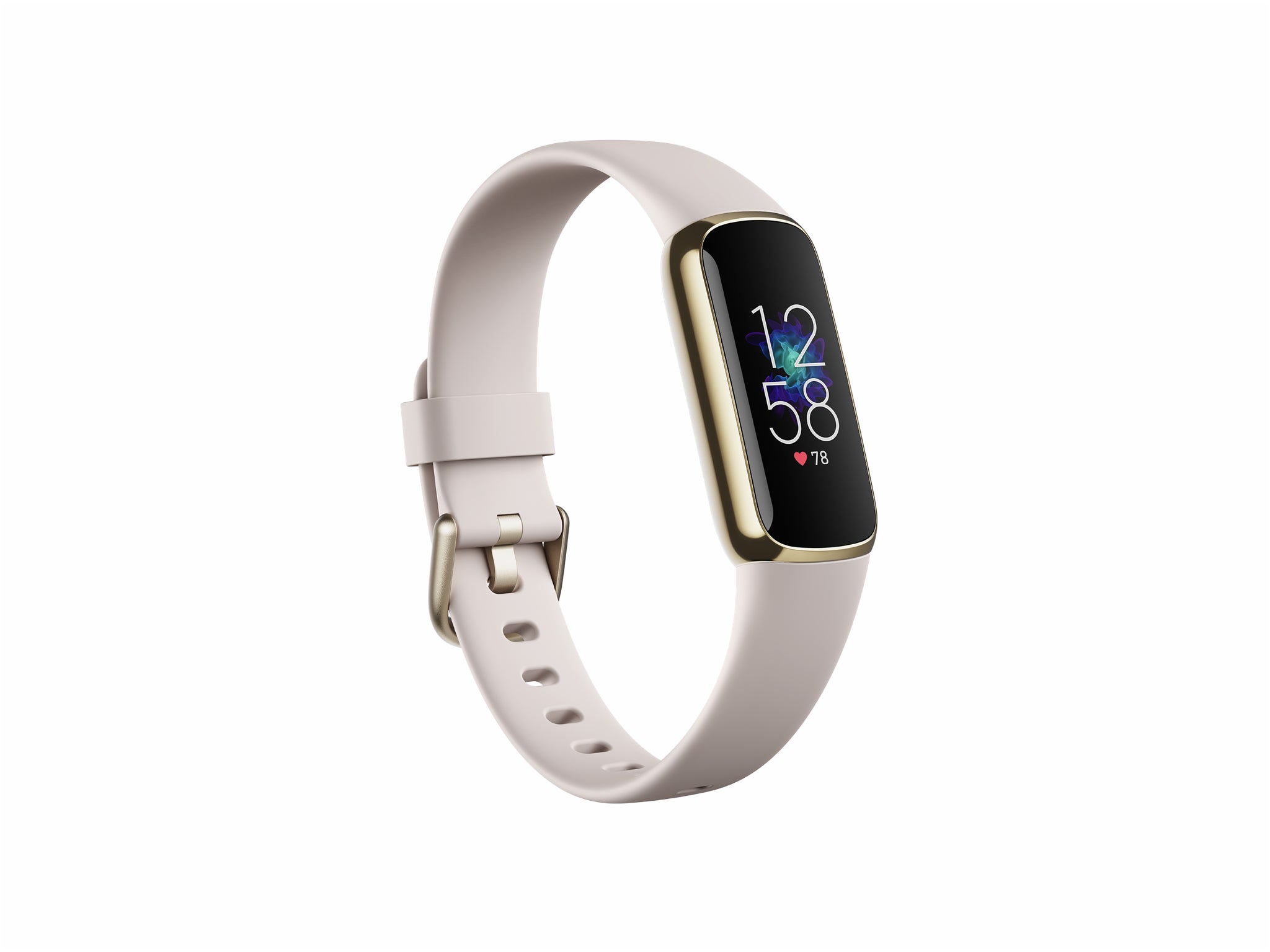
- Best: Slimline style
- Battery life: Up to 5 days
- Standout features: ECG sensor, SpO2, sleep and menstrual health trackers, stress management tools, smartphone notifications
The luxe might look and sound like a stylish fashion piece but there’s also plenty of fitness tech hidden within. It covers the essentials well, with Fitbit’s 24/7 heart rate monitoring, 20 exercise modes, swim tracking, menstrual health tracking and stress management tools, and, along with the sense, it is the most sophisticated and stylish product the brand has produced. It’s incredibly slim, so it might get lost on larger wrists, but the stainless steel housing feels sturdy and durable. It looks great and will do you good.
Fitbit ace 3
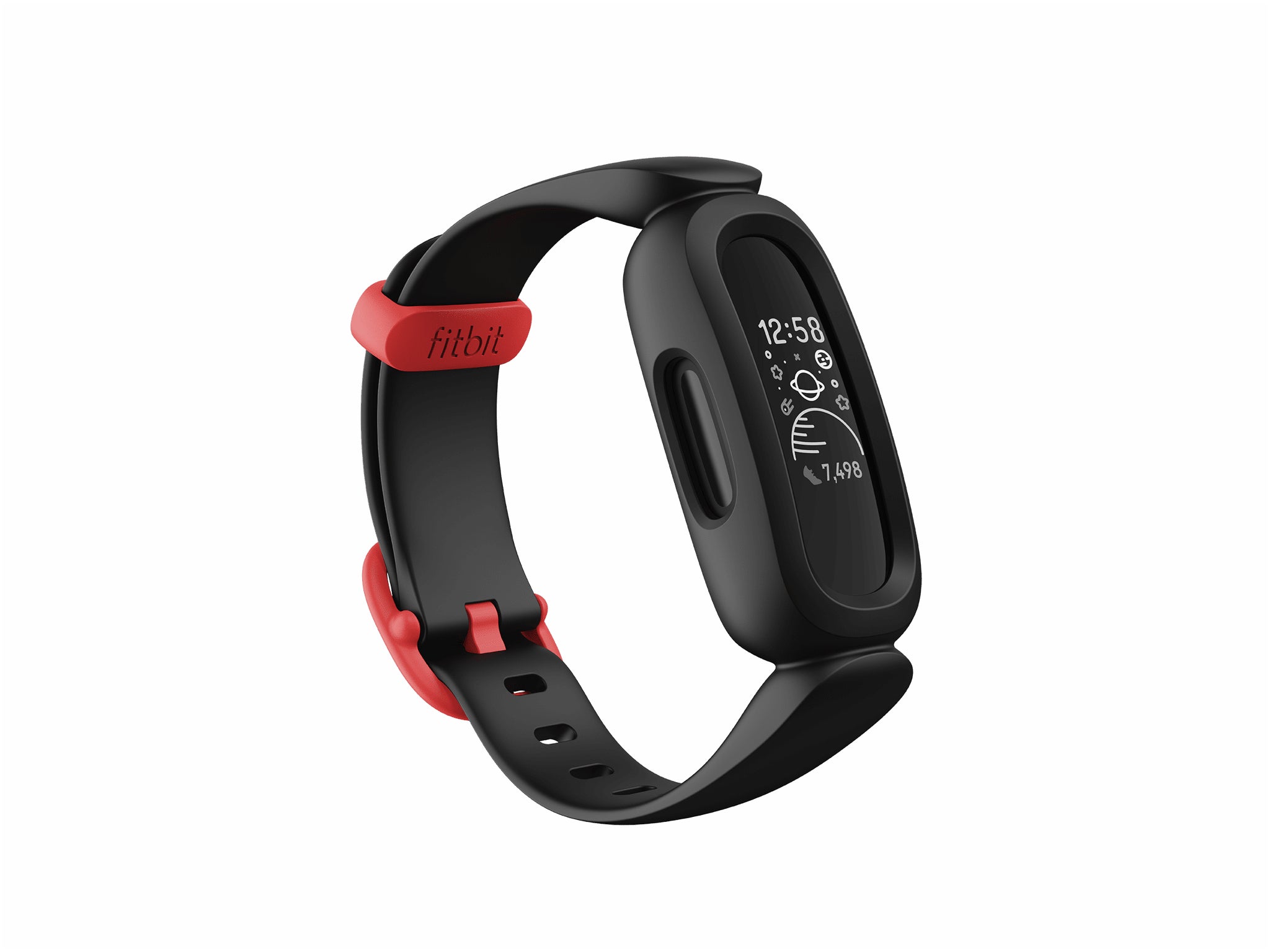
- Best: For children
- Battery life: Up to 8 days
- Standout features: Sleep tracker, bedtime reminders and alarms, streamlined design, parent and child app views
The robust ace 3 is a good introduction to wearable tech for children. While kids might not necessarily need a watch to tell them to run around, it can be useful for introducing them to the idea of their own health and how to look after their bodies. Fitbit’s features have been streamlined in the ace 3, with a simple layout and clear screen to help cut through the data and provide an easy-to-understand series of health stats. There’s also an option to set up a Fitbit family account on the app to encourage building healthy habits together, with a dedicated “parent view” for adults to see just how far children can actually run in a day with their enviably-infinite energy.
Fitbit inspire 2
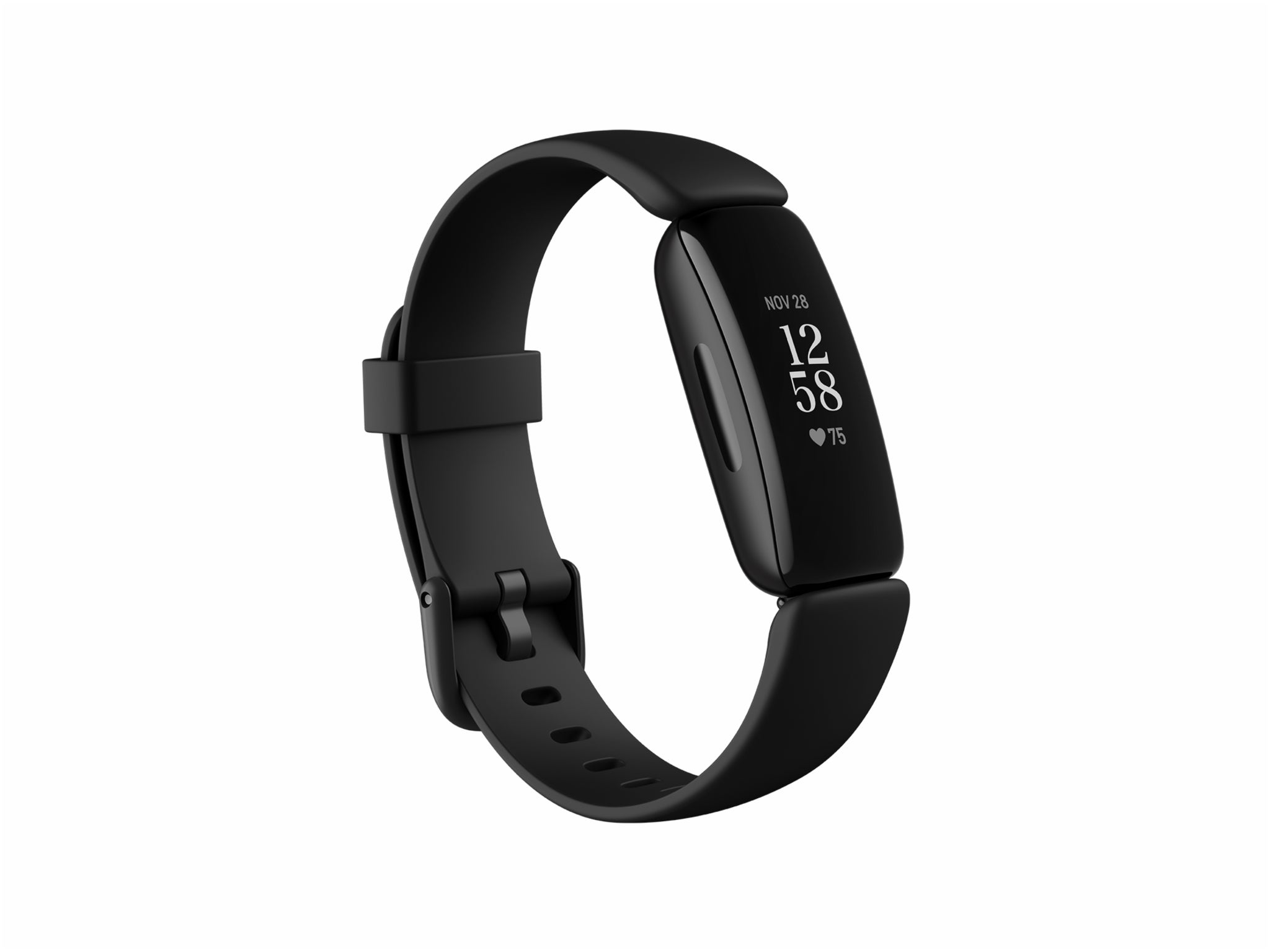
- Best: Budget Fitbit
- Battery life: Up to 10 days
- Standout features: ECG sensor, menstrual health tracker, stress management tools, 20 exercise modes
Inspire 2 is the fitness tracker for those who want the essentials. The cheapest of the latest-generation models, it’s a pure fitness band, packing up to 10 days of battery life and providing almost all of Fitbit’s most sophisticated fitness tracking tech, including sleep monitoring and stress management. There’s also an in-app workout intensity map, where you can see your heart rate zones throughout each workout to realise where you’re taking it too easy. New premium users also get a year’s trial to dive deeper into the tracker’s capabilities.
The verdict: Fitbits
The best all-round Fitbit currently available is, perhaps unsurprisingly, the most expensive. The sense takes the title due to the sheer breadth of its capabilities and is worth the extra outlay but, if you’re in the market for an extra smart fitness tracker that doubles as a pretty good smartwatch, the versa 3 is a smart choice for the price. Of the slimline options, the luxe is the most fashion-conscious but won’t suit everyone, while the charge 4 combines its slender looks with strong tech ability to be Fitbit’s best pure fitness tracker.
Voucher codes
For the latest discounts on Fitbits and other tech, try the links below:
You’ll be reaching your goals in no time with our round-up of the best fitness watches
